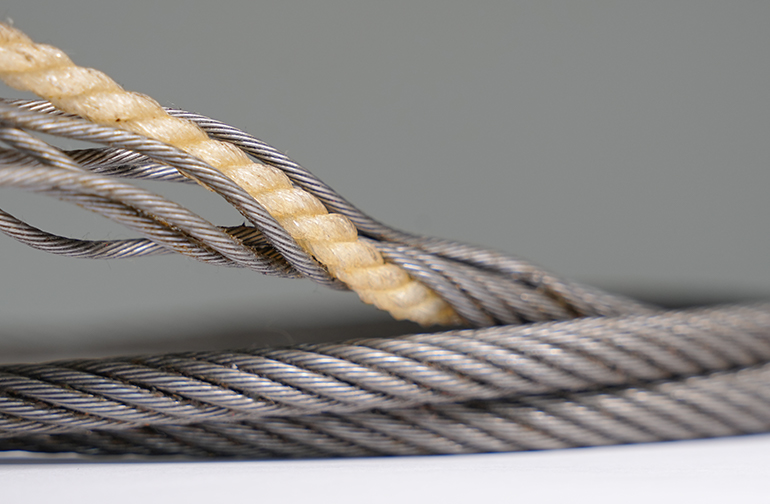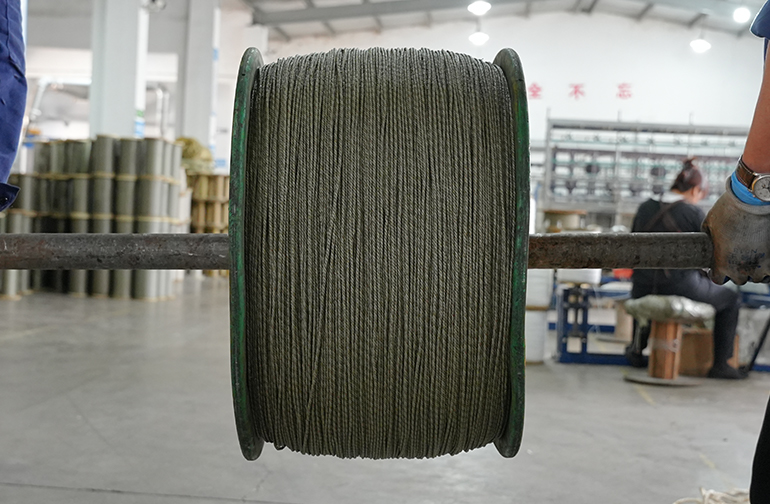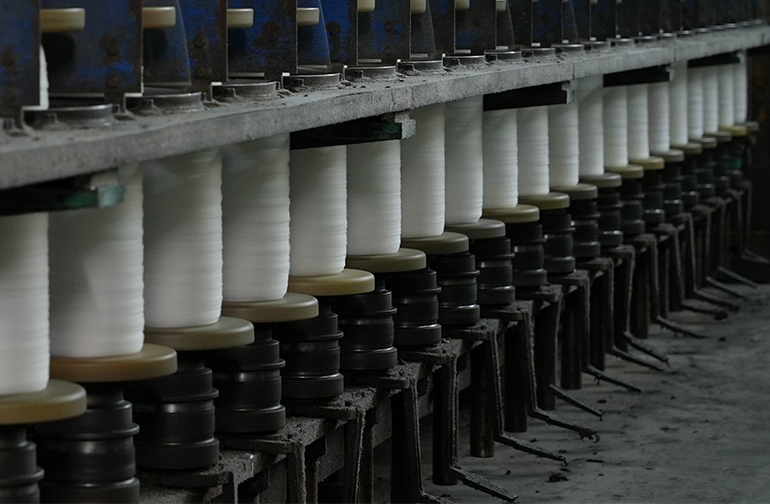Elevator Wire Rope Core Product Classification
**Classification by Material**
Fiber Core (FC)
Natural Fiber Core (NF): Commonly made from natural fibers such as sisal and jute. Sisal fiber core has high strength, good wear resistance, and strong corrosion resistance, making it suitable for the core of large-diameter wire ropes. Jute fibers are short and stiff, with relatively poor strength and compressive performance, but they have strong moisture absorption.
Synthetic Fiber Core (SF): Made from synthetic fibers such as polypropylene (PP) and polyamide (PA). It has resistance to corrosion from acids, alkalis, and salts, can withstand significant tensile force, and has good compressive performance. The diameter is uniform, it is not prone to mildew and decay, and it does not become brittle.
Wire Core (WC)
Independent Wire Rope Core (IWRC): Composed of multiple wires twisted into an independent wire rope as the core, it can increase the breaking tensile force of the wire rope, is resistant to compression, and has good structural stability. It is suitable for high-temperature conditions and situations where large loads are to be carried.
Composite Strand Core (CSC): Made from a combination of steel wires and fiber materials, it combines the strength of wire core with the flexibility of fiber core.
Wire Strand Core (WSC): Using wire strands as the core, it has high strength and stability.
**Classification by Special Performance**
Steel-based Composite Core with Polymer-coated Wire Core (EPIWRC): A polymer coating is applied to the surface of the wire core to enhance its corrosion resistance and lubricity.
Solid Polymer Core (SPC): Made from solid polymer materials as the core, it has good flexibility and durability.
These classifications cover the main types of elevator wire rope cores. Different types of cores have their own characteristics in terms of performance and application, making them suitable for various working conditions and requirements.




